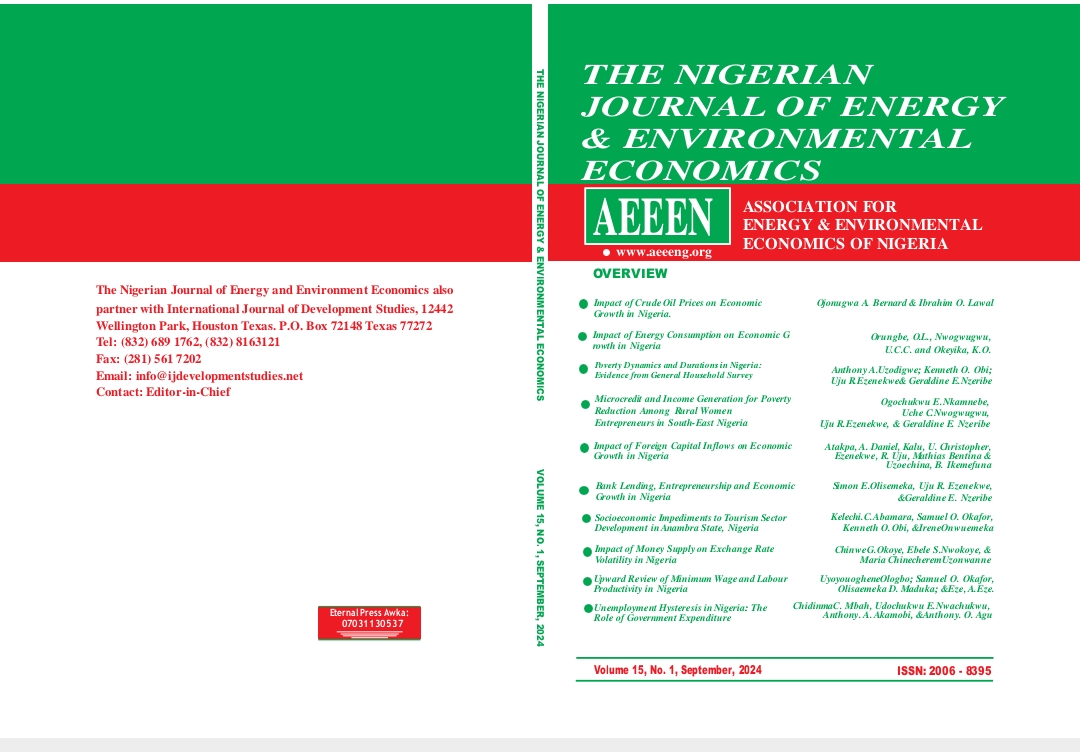IMPACT OF FOREIGN CAPITAL INFLOWS ON ECONOMIC GROWTH IN NIGERIA
Keywords:
Foreign capital inflows, Economic growth, Government expenditure, ARDL modelAbstract
Nigeria's economic landscape is marked by its position as one of the leading recipients of capital inflows in Africa, but has been facing challenges in effectively harnessing capital inflows for productive investments. Despite efforts to attract foreign investment through policy reforms and incentives; structural impediments such as inadequate infrastructure, weak institutional frameworks and low human capital development persist. Hence, this study examined the impact of foreign capital inflows on economic growth in Nigeria. The analysis considers variables including real gross domestic product, foreign direct investment, remittances, foreign portfolio
investment, official development assistance, external debt, government capital expenditure on infrastructure, government expenditure on health, government expenditure on education, and institutional quality. Using an autoregressive distributed lag (ARDL) model, the findings revealed that foreign direct investments, Remittances, official development assistance and external debt positively influence economic growth in both the short and long run. Importantly, infrastructure development and institutional quality, not only directly enhance growth, but also amplify the effectiveness of other economic variables like foreign direct investment and
remittances. Based on the findings, it is recommended that there should improvement of Nigeria’s absorptive capacity through better infrastructure and institutional quality to optimize the benefits of capital inflows. Moreover, addressing structural barriers will enable Nigeria to better harness foreign capital inflows and drive economic growth.


